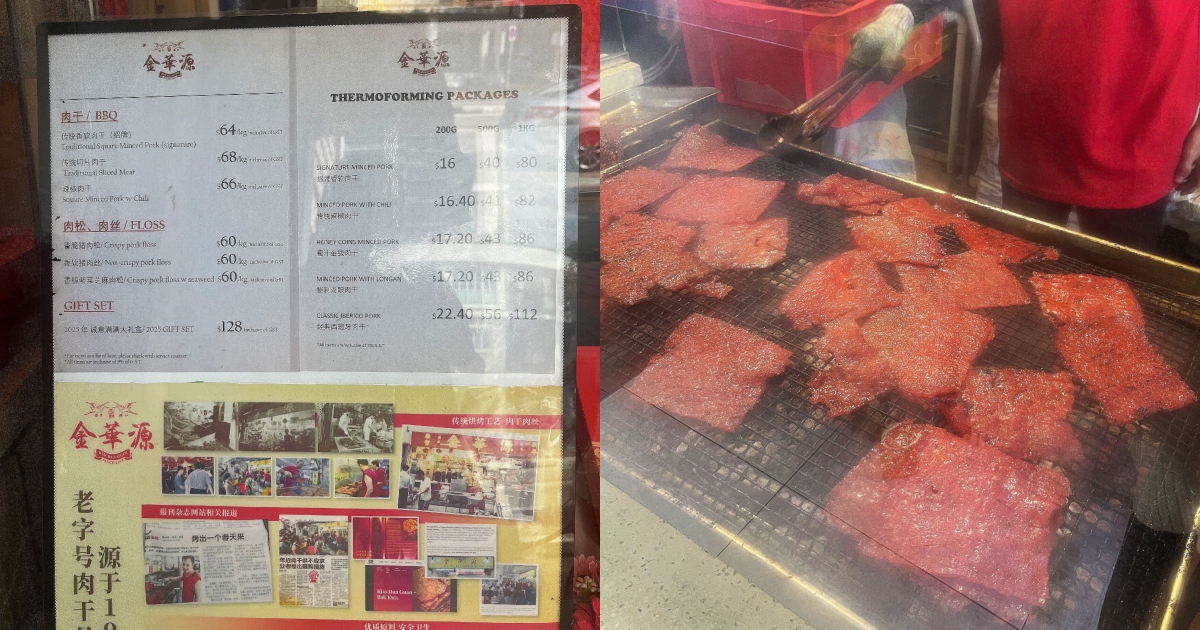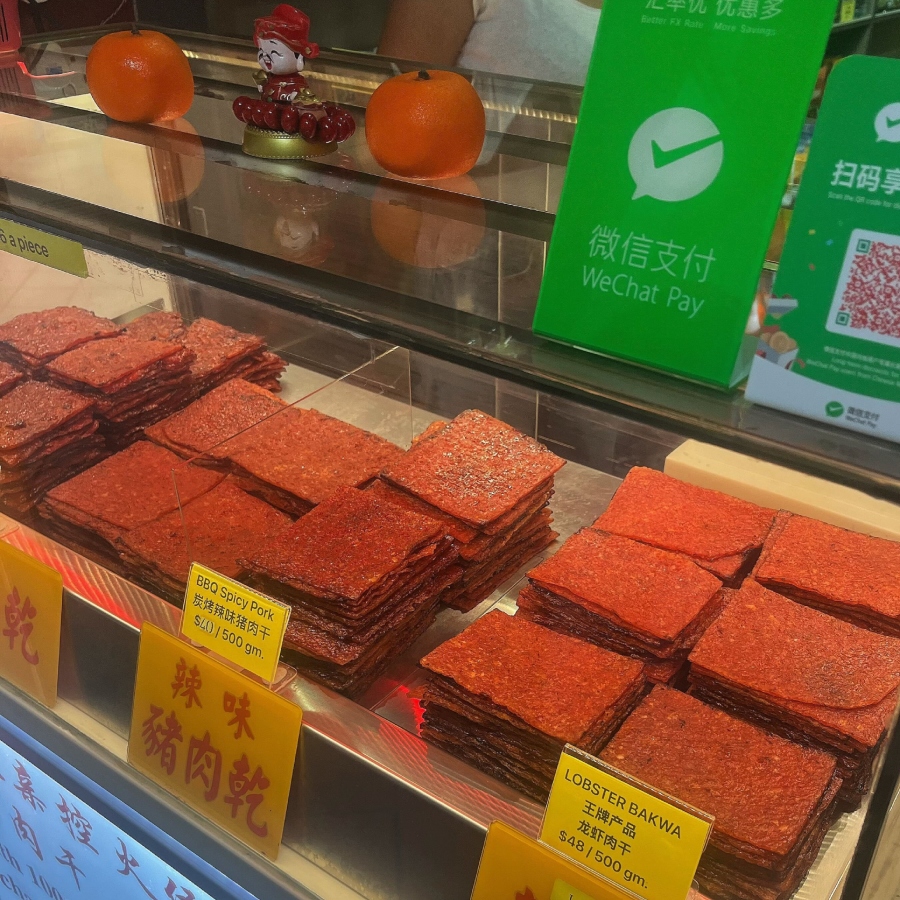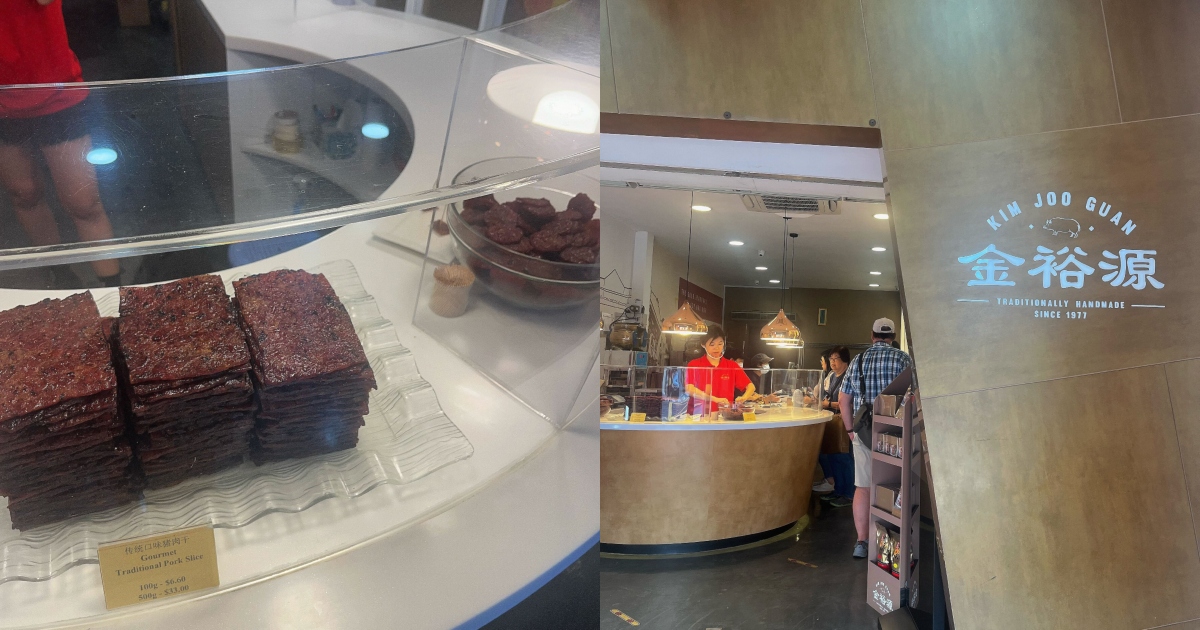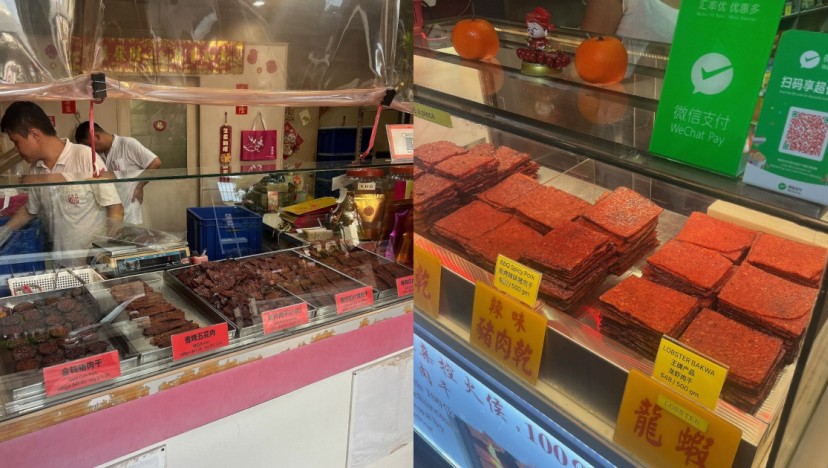Chinese New Year is approaching, and as the festive spirit soars, so have the prices of certain goodies such as bak kwa, a popular barbecued sliced-pork treat.
As much as bak kwa is a staple for Chinese New Year, the yearly price hikes during this period have also undeniably become a part of the festive period.
Several businesses AsiaOne spoke to have confirmed that the prices for their bak kwa are higher during this period, with one store even going up by $10 per kilogramme (kg).
"Our normal price per kg is $68, now it's selling at $78," said Roy Aw, the third-generation owner of Hu Zhen Long, an old-school bak kwa store located along Sago Street.
According to the 61-year-old, this pricing will likely remain until the start of Chinese New Year.
When AsiaOne visited Kim Hua Guan at Balestier Road on Tuesday (Jan 7), staff member Elizabeth said: "Every week (approaching Chinese New Year), there'll be an increase in price of two dollars [for bak kwa]."
Their bak kwa currently ranges from $64 to $66 per kg — an increase of about four dollars compared to the usual off-peak cost of $60 to $62 per kg.

The store will continue adopting this pattern until Jan 26.
Popular bak kwa brands like Bee Cheng Hiang and Kim Hock Guan have also raised their prices in the lead-up to Chinese New Year.
A Shin Min Daily News report saw that their bak kwa prices have increased from $72 per kg last year to $74 per kg and $75 per kg respectively this year.

It seems that despite the mark-ups, bak kwa remains popular with customers.
"For us, the demand is always there," Hu Zhen Long's Roy shared with AsiaOne.
This sentiment is echoed by Kristy, a store manager at Kim Joo Guan's flagship store located along South Bridge Road, who said that they're "usually sold out every day in [the] physical store".
[[nid:611684]]
And this was evident when AsiaOne visited the store at 5pm on Jan 7. The display cabinets — which are usually filled with rows and stacks of bak kwa — were nearly empty, with only one plate of bak kwa slices and some bak kwa coins left.
The 44-year-old also shared: "Our [online] pre-orders are already fully booked since last Sunday."
Currently, 1kg of Kim Joo Guan's Gourmet Traditional bak kwa costs $66. During the non-festive period, it costs $59 per kg.

"Nearer to Chinese New Year, the sold out [timings] will get earlier and earlier," she observed.
Rising costs of raw ingredients and manpower
According to the businesses that AsiaOne spoke to, the price hikes are mainly due to manpower cost and the surge in prices for raw ingredients during this season.
"[It's] mainly staff cost. We need to cover overtime costs, and raw materials have also increased in price, [especially] pork and sugar supply," Kristy said.
The store manager also explained that as many Chinese New Year treats use ingredients such as sugar (which is also used for bak kwa), there is higher demand for them and therefore the prices have also become inflated.
"I think it's normal, even if you go to the market, the [cost of] vegetables have also [increased]," she added.
Similarly, in Shin Min's report, Wang Longfen, deputy sales manager of Bee Cheng Hiang, said: "We adjust our prices every time we approach the new year to adapt to the rising costs of raw materials, utilities, pork, sugar and charcoal.
"Plus, there will be more customers in the store nearing Chinese New Year, so we'll need to hire more part-timers to help with packaging jobs."
[[nid:713049]]







.webp)
.webp)

